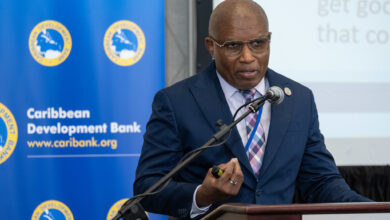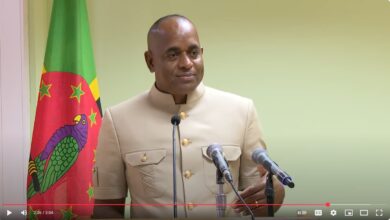Trinidad and Tobago yesterday called for simpler processes and procedures in order for Caribbean people to take full advantage of the Caribbean Community (Caricom) Single Market and Economy (CSME).
In an address to a two-day Newspaper Editors Regional Integration and CSME Workshop at Carlton Savannah hotel in Cascade, acting Foreign Minister Surujrattan Rambachan said the CSME, which allows for the free movement of goods, skills, labour and services across the region, is not an event.
“It is a process…a process that requires continuous evaluation and adjustments aimed at stabilising sustained growth and attaining equilibria if even for short periods if we are to improve as a region and be competitive in the global market.
“The objectives of the CSME cannot be fully realised without an effective public education strategy. Too often we are critical of the media but the media is the most powerful tool of communication in this globalised environment,” Rambachan said.
He told delegates at the workshop, organised by the Caricom Secretariat in collaboration with the European Union, Trinidad and Tobago views, “the CSME as a linchpin which will hold together the regional economy based on greater efficiency, enhanced competitiveness and improved social conditions in this era of increased globalisation”.
Rambachan said the CSME created binding commitments in respect of the free movement of the factors of production and the right of establishment.
“Its full implementation is however incomplete since some member states have not removed all restrictions as outlined in the Revised Treaty of Chaguaramas,” Rambachan said, noting developmental work is continuing to ensure the market, “is at all times reflective of the needs of our regional society”.
He acknowledged the many challenges being faced by the small states in the Caricom region are overwhelming and that small size, economic, social and environmental vulnerability, as well as inadequate legal and institutional capacity, are all commingled in a toxic brew.
“The adage that we must stand together or collectively perish remains poignantly relevant,” he said, noting a critical examination of the status of the CSME will indicate that major obstacles to efficient trade and productive commerce include legal administrative and bureaucratic impediments.
“If we are to overcome these hurdles to regional economic advancement, it is essential that there must be harmonisation of our administrative procedures and our legislation. The Caricom Secretariat has proposed several initiatives aimed at increasing harmonisation,” he said, stressing that greater synergy among the participating CSME member states will foster overall economic advancement based on trade in goods and services, the mobility of capital and the development of needed infrastructure.
Rambachan said fundamental underpinnings of the operation of the single market include the entitlement of Caricom nationals to establish businesses; provide services; and move capital. In addition, skilled Caricom nationals should enjoy the right to travel, live and work in a CSME member state of their choice.
“Integration of this nature requires implementation of new and extensive reform of existing legislation and regulations, as well as associated procedural and administrative arrangements to operate the Caricom Single Market. In addition, appropriate systems need to be established. In this regard, public education and advocacy must be undertaken, to ensure that stakeholders have access, to, and participate in the various regimes.”
The Minister said the regime governing the free movement of labour seeks to place the region’s economies in a position that would allow them to benefit from highly-skilled workers, especially given the fact that several member states are currently experiencing apparent labour shortages in some of their key sectors.
He said the free movement of goods and services has also provided a favourable regional climate for business creation activities, in particular the institution of measures facilitating the free movement of services.
“You will appreciate, ladies and gentlemen, that for the full and efficient functioning of the CSME, the creation of systems and procedures to facilitate management and administration at the national level is required.
“The effective participation of stakeholders will require the creation or improvement of an infrastructure for their participation in the decision-making and implementation processes, in particular, ensuring their effective access into the labour and services markets.”
Rambachan said the CSME must be a lived reality.
“It must be equally facilitative of the fisherman trying to sell his catch to a sea-food company in another island, to the architect designing a multi-storey office building. For this to be achieved successfully, processes and procedures must be simpler so that persons can take advantage of the opportunities available to them,” he said.
The two-day workshop will discuss a number of topics, including the Caribbean Court of Justice and its importance to the regional integration movement, as well as improving access to the Caricom Single Market and training priorities for Caricom newspapers. —CMC






